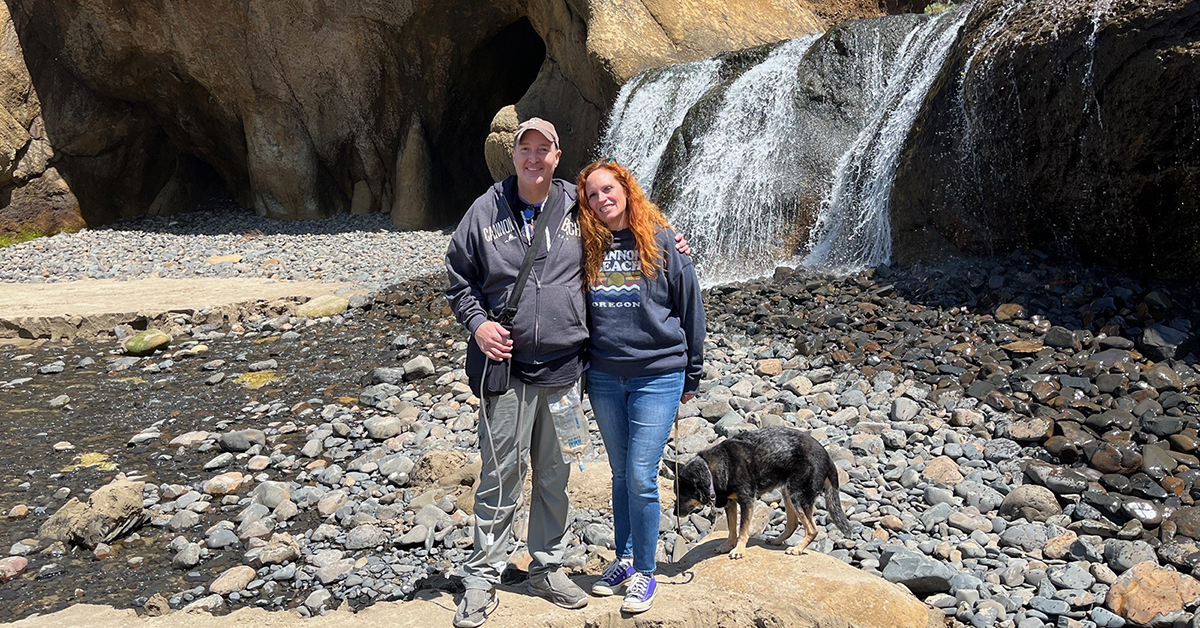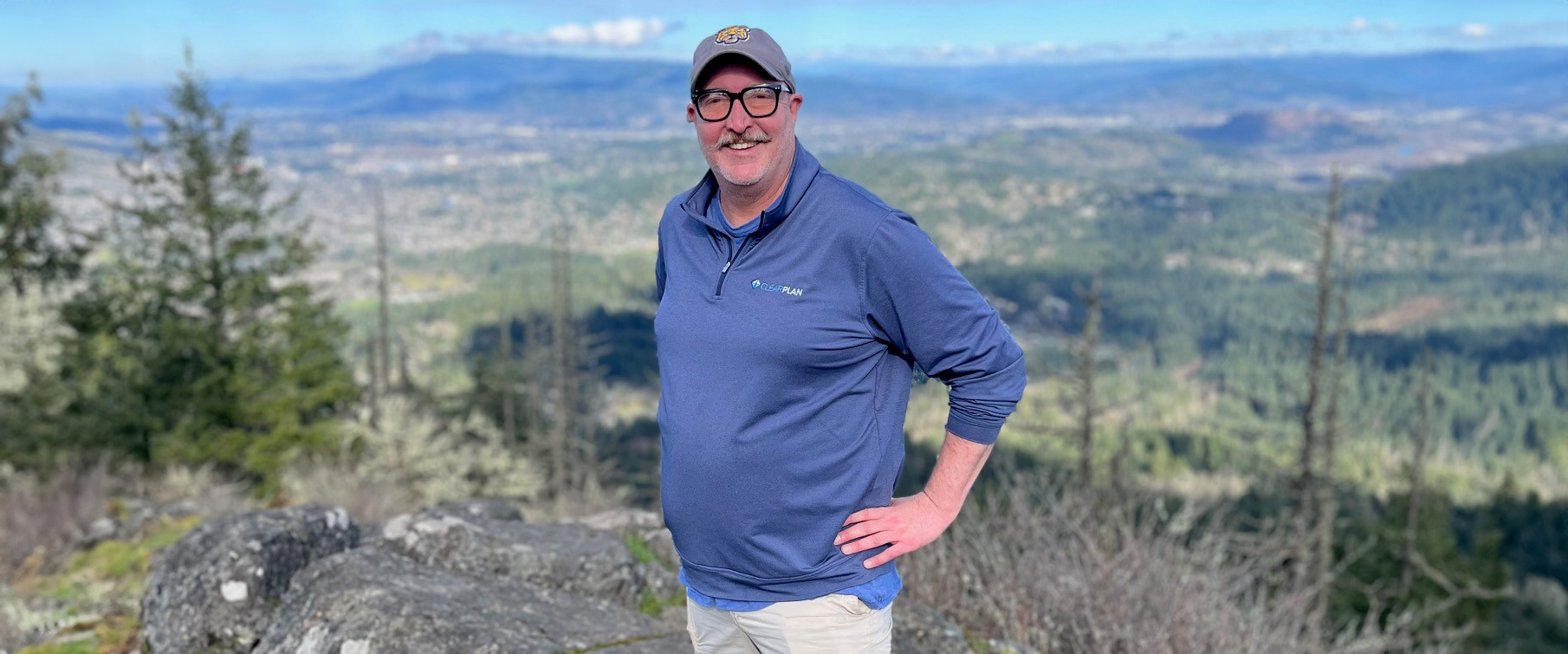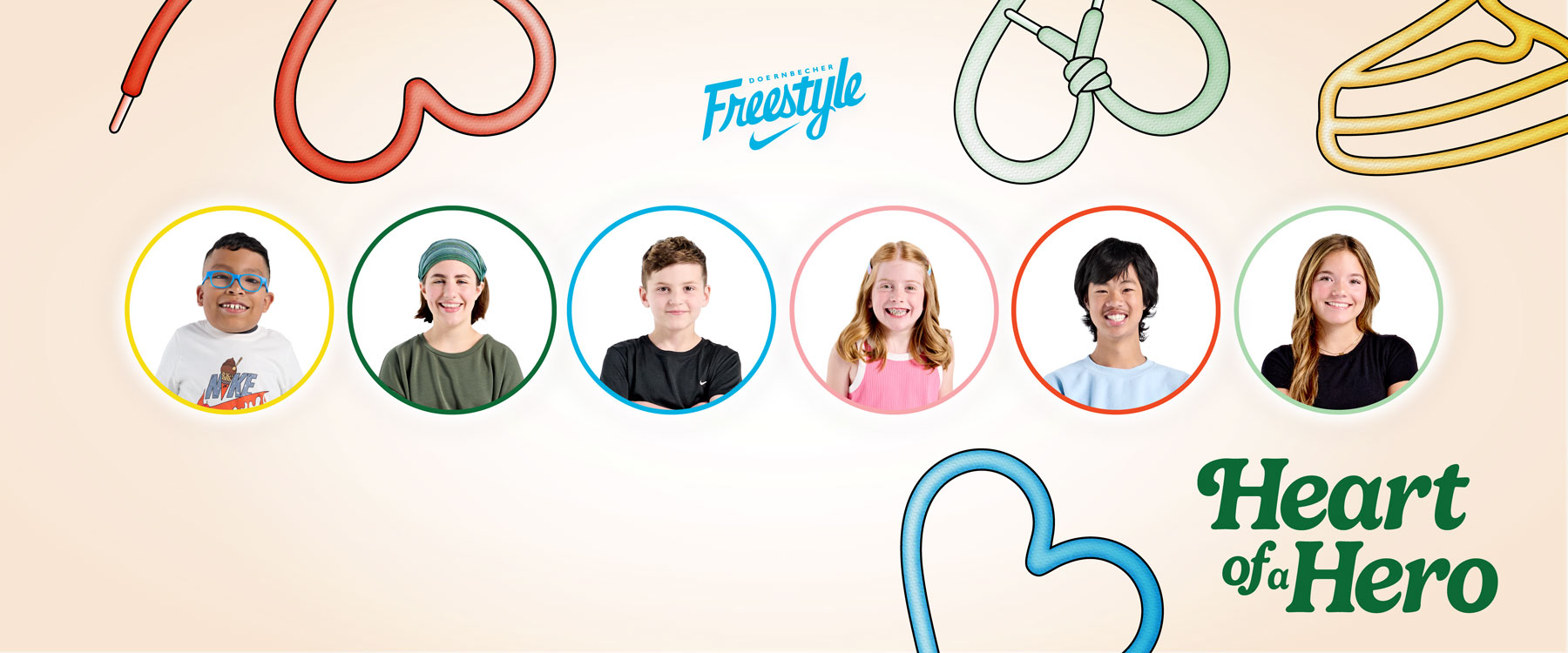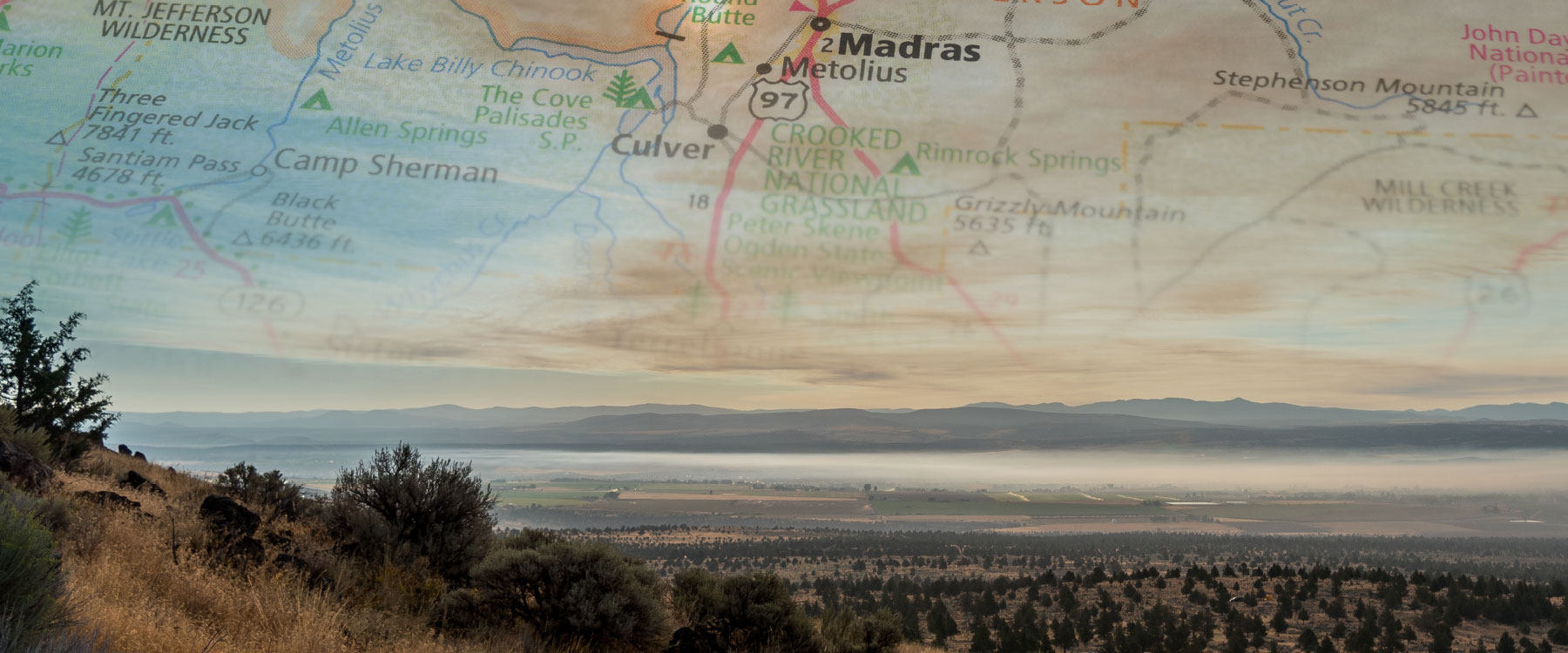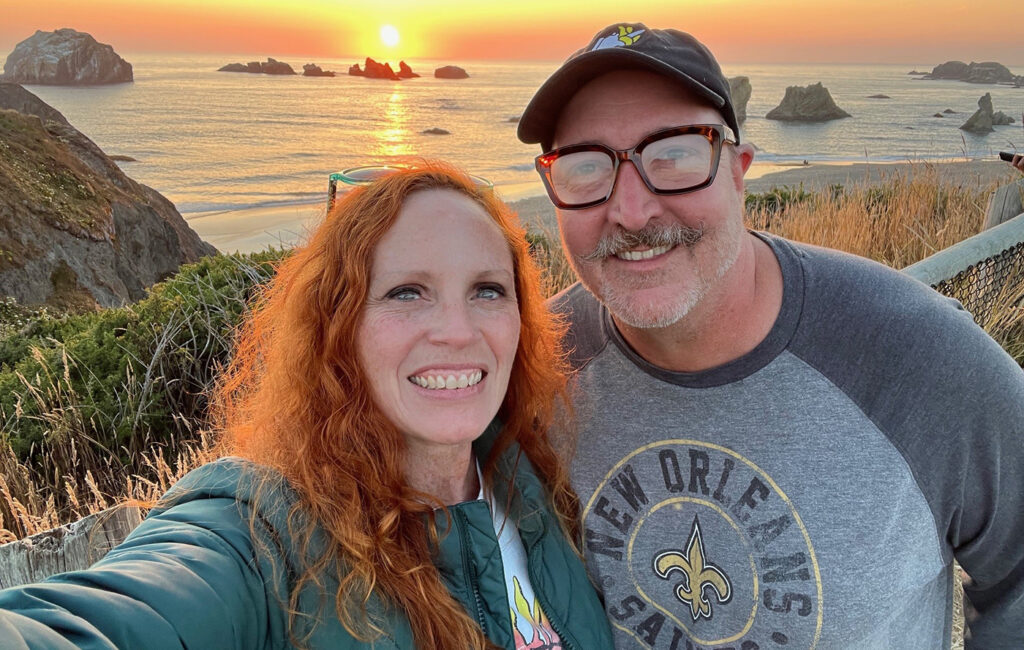
Following an ambulance up I-5 toward OHSU, Jacquelyn Brubaker racked her brain, trying to make sense of how the situation got this dire.
Everything had happened so fast. Her partner, Gerard Cox, was fine just a few days ago. Then, he started feeling symptoms. One after another, they came in phases, each more concerning than the last. First, he felt ill. Next, a skin infection around his groin. Trouble walking. Yellowing skin. All over the course of 72 hours.
Then, a rush to Willamette Valley Medical Center. Emergency surgery. The shocking diagnosis: necrotizing fasciitis — flesh-eating disease. An urgent transfer to the OHSU Trauma Center. “If we don’t get him there tonight, he will not make it,” they said.
Brubaker arrived at OHSU and watched as Cox’s trauma care team began prepping him for the operating room. Soon, she found herself surrounded by doctors.
“They were like, ‘This is going to be a long surgery. Is there anything you’d like to say?’” she recalled. “I just said, ‘Gerard is a person who loves life. He’s very loved. He wants to live. There are a lot of people who need him around.’”
“And I just kept saying, ‘Just do everything you can. Do everything you can. Do everything you can.’”
‘I knew I was in trouble’
Cox’s experience comes back to him in fragments.
It was April of 2022. He and Brubaker were vacationing in Oregon — on a quest to decide where in the Beaver State they wanted to move to from New Orleans.
Leading up to their flight to Portland, however, Cox felt off. At first, it was minor. He was a little tired and was nursing a faint rash near his groin. The morning of their departure, he felt slightly worse, but not bad enough to cancel his and Brubaker’s Oregon trip.
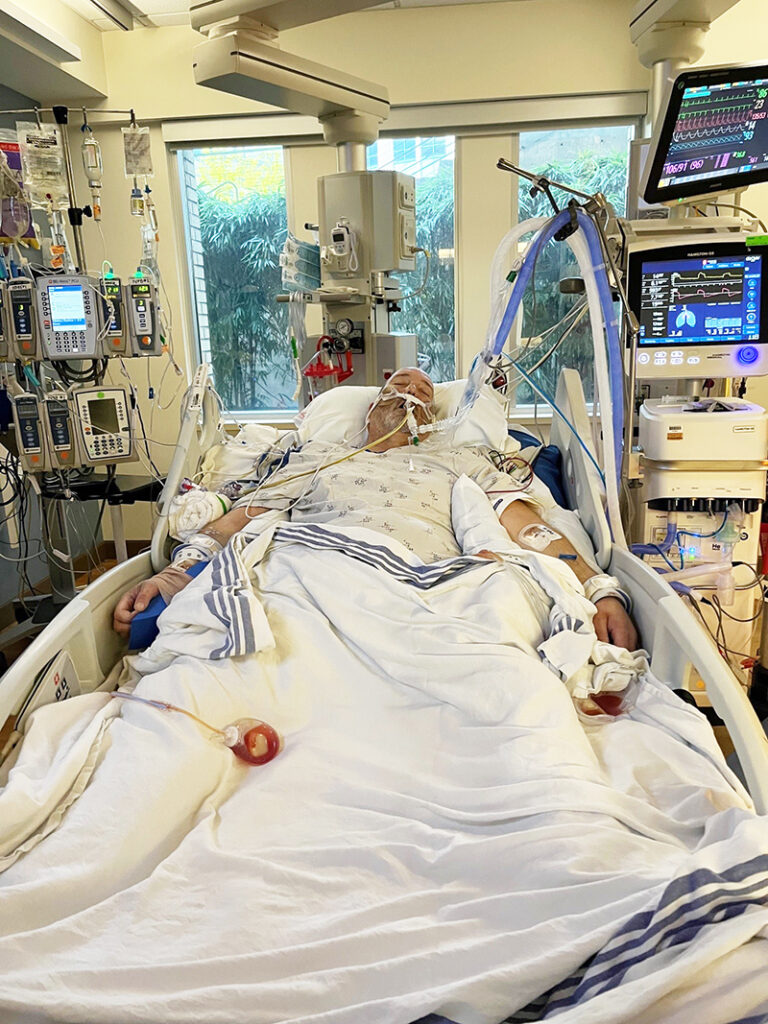
It’s when the couple lands in Denver for their layover that Cox’s memory starts to get hazy.
“It got bad when we were in Denver,” he said. “I had no idea. I was just kind of out of it.”
The couple sought out an urgent care clinic in Portland right after they landed. Cox was diagnosed with cellulitis and was prescribed antibiotics. From Portland, the two drove to their Airbnb in Pacific City.
The next morning, Cox struggled to walk, and he noticed pus secreting from his navel.
“I really could tell then something was going wrong,” he said. “I knew I was in trouble.”
Brubaker and Cox drove to Willamette Valley Medical Center in McMinnville. Cox underwent emergency surgery two hours later to drain his infection. The couple stayed there for two days waiting for an official diagnosis. When it came, Brubaker couldn’t believe it.
“When I heard the words, ‘Necrotizing fasciitis,’ I saw stars,” Brubaker said. “I was just thinking, ‘Oh my God. This can’t be happening.’”
Cox’s situation was severe, and it soon became apparent to everyone involved that the resources at Willamette Valley wouldn’t be enough.
“I got a call and it was Gerard’s doctor. He was like, ‘There’s one bed at the OHSU Trauma Center. If we don’t get him there tonight, he will not make it,’” Brubaker said. “All I knew was that I needed to get our stuff and get up to Portland.”
Gerard’s Alive Day
The OHSU Trauma Center is the only academic Level I trauma center in the state.
Staffed by expert surgeons, nurse practitioners, physician assistants and other clinicians, the OHSU Trauma Center treats a variety of trauma, critical care and acute case cases. Its partnership with the U.S. Army trains active-duty servicemembers who gain valuable experience at OHSU treating soldiers and civilians alike.
Cox arrived at OHSU on April 19, 2022 — a day he and Brubaker have taken to calling “Gerard’s Alive Day.”
“That’s the day OHSU and Dr. Swann saved his life,” Brubaker said.
“OHSU is the reason I’m sitting here. We are beyond grateful for the care we received there.”
Gerard Cox
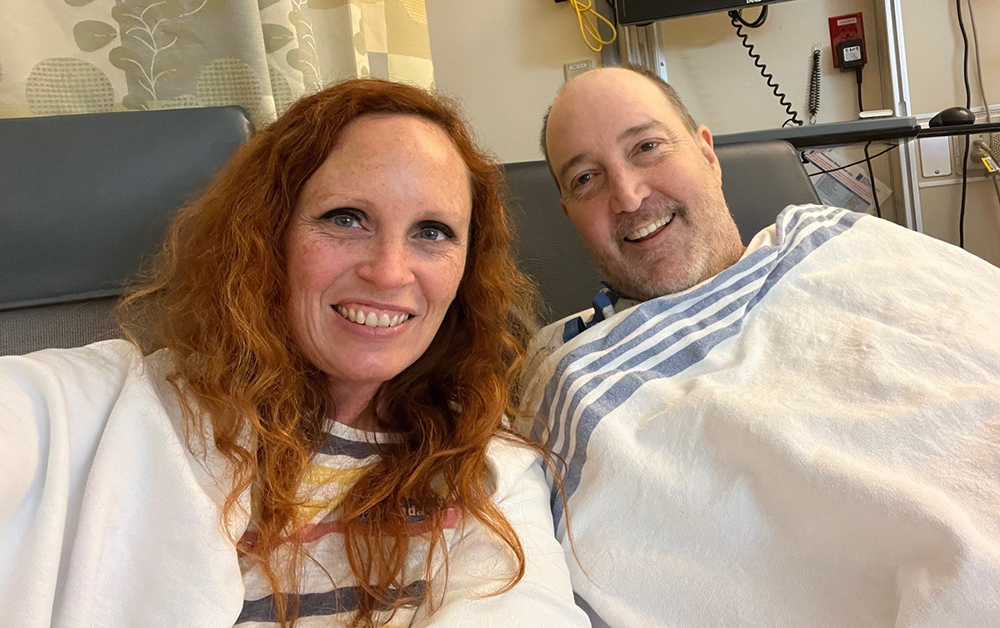
Cox was treated by trauma surgeon Maj. Jacob Swann, M.D., who trains at OHSU through the Army Military Civilian Trauma Team Training program. The initial surgery took about six hours. Swann and his team searched Cox’s body for as many pockets of infection as they could find, removed dead tissue and placed six drainage ports and a wound vac. Brubaker got a call at 2:30 a.m. from Swann letting her know that Cox was doing well but that he’d need to undergo more procedures.
Cox, who by this point was in an induced coma, ended up having four surgeries over his first five days at OHSU. After the fourth operation, he was finally stable enough to be pulled out of his coma.
But Cox wasn’t out of the woods yet. Though his condition was improving, he’d undergo another four surgeries over the next two weeks. As Cox made progress, Brubaker flew back to New Orleans to close out their life in Louisiana and prepare the move to Oregon.
On May 16 — one month after Cox was admitted to Willamette Valley — he was discharged from OHSU. As he left, he reflected on the life-saving experience.
“Jac and I wanted to grab everybody’s name on the way out so we could send them cards and pictures,” Cox said. “They saved my life, but they made that month in the hospital such an enjoyable experience. It was incredible, despite being sick and stuck in a hospital room. The entire staff — the doctors, the nurses, the techs — they were so upbeat and positive. It just felt like they really loved their job.”
No place like Oregon, no place like OHSU
From the picturesque Oregon coast to the towering peaks of the Cascades, Oregon’s majesty has never been lost on Brubaker and Cox. They wouldn’t have the opportunity to experience everything Oregon has to offer had it not been for OHSU.
“We would not have the beautiful life we have now without OHSU and the amazing people who make it all happen,” Brubaker said.
“OHSU is the reason I’m sitting here,” Cox said. “We are beyond grateful for the care we received there.”
It has been two years since Cox’s encounter with necrotizing fasciitis, and he and Brubaker — who now live in Eugene — are making the most of their new home.
“Just last weekend, we saw the aurora borealis, and then a few hours later we went out on a whale watching trip and saw our first killer whale,” Brubaker said. “We are out here appreciating Gerard’s second chance at life every day, every weekend, every moment. The only reason Gerard is here is because of OHSU. There’s no question about that.”
